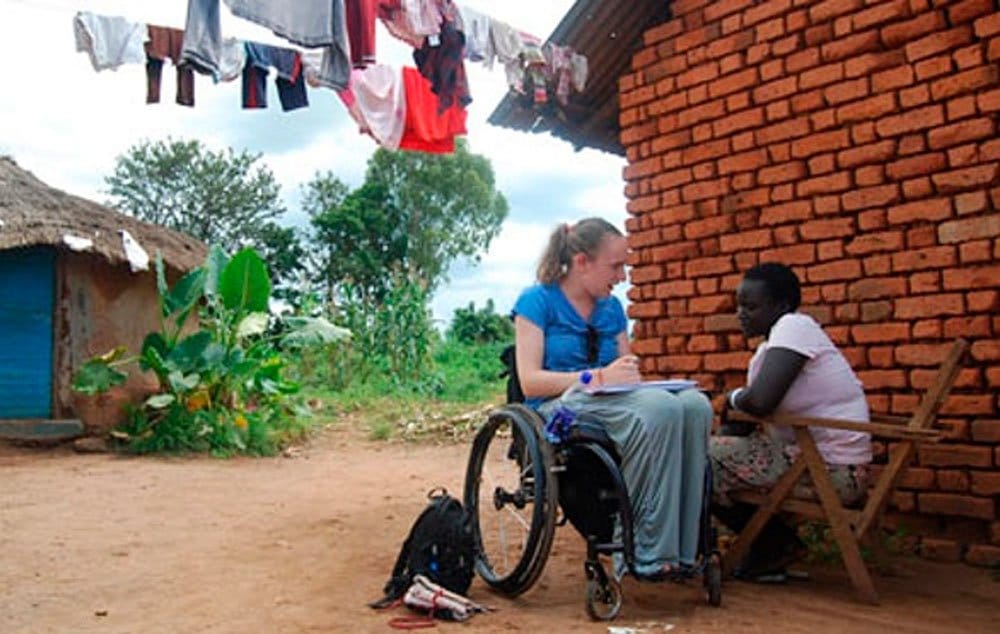I think you just learn to travel. You make mistakes, you figure out and next time you will be better prepared. I remember my first proper holiday after my accident. We had flown into Marrakech with no money, none of my bank cards were working and we had bartered a hire car with the last pounds we had. So we sat in the car with my wheelchair and luggage loaded in the back and my assistant turns to me and says, “So where are we going?”
I hadn’t booked a hotel for that night and didn’t really know where to start. I just thought, “I’m in a wheelchair – what the fuck am I doing in Africa?” But it was one of the best holidays I’ve had, such a big adventure and so much fun.
I have occasionally learned the hard way – what I need to take, what I need to do, and the sort of person I like to travel with. I have a pretty hefty first-aid kit with all the general plasters and water purification tablets, and just-in-case stuff such as antibiotics for diarrhoea. I’ve also always got a credit card with a limit high enough to book a flight home, plus a necklace with the tag that has my travel insurance details engraved on it so that they are always with me. Luckily I have not often needed such things, but it gives me the security to be adventurous.
Developing countries are often the most fun to travel in – there is little of the health and safety nonsense that can inhibit us in the west. Where there’s a will, there’s a way, even if you have to travel in the luggage compartment on a train in India. I think just the presence of a western disabled person in these places can inspire the disabled community there. There is often a preconception that there is little disability in the west because we can just pay to be fixed.
So, in 2010 I set up a charity, Vitality (vitalchange.org.uk) to provide training for carers of people with spinal cord injury in developing countries, improving the quality of life of the individual and their families. The work is truly vital: the World Health Organisation estimates that the life expectancy of a spinal cord-injured person in a developing country is only two to three years. Further research from India shows that nearly four out of five carers of people with a spinal cord injury are psychologically distressed.
We provide a peer group programme to help carers overcome the emotional and physical demands of looking after a person with a spinal cord injury.
Lucy Robinson, vitalchange.org.uk
Source: The Guardian



